Intel Core i9-13900K and i5-13600K Review: Raptor Lake Brings More Bite
by Gavin Bonshor on October 20, 2022 9:00 AM ESTCPU Benchmark Performance: Rendering And Encoding
Rendering tests, compared to others, are often a little more simple to digest and automate. All the tests put out some sort of score or time, usually in an obtainable way that makes it fairly easy to extract. These tests are some of the most strenuous in our list, due to the highly threaded nature of rendering and ray-tracing, and can draw a lot of power.
If a system is not properly configured to deal with the thermal requirements of the processor, the rendering benchmarks are where it would show most easily as the frequency drops over a sustained period of time. Most benchmarks in this case are re-run several times, and the key to this is having an appropriate idle/wait time between benchmarks to allow for temperatures to normalize from the last test.
One of the interesting elements of modern processors is encoding performance. This covers two main areas: encryption/decryption for secure data transfer, and video transcoding from one video format to another.
In the encrypt/decrypt scenario, how data is transferred and by what mechanism is pertinent to on-the-fly encryption of sensitive data - a process by which more modern devices are leaning to for software security.
We are using DDR5 memory on the Core i9-13900K, the Core i5-13600K, the Ryzen 9 7950X, and Ryzen 5 7600X, as well as Intel's 12th Gen (Alder Lake) processors at the following settings:
- DDR5-5600B CL46 - Intel 13th Gen
- DDR5-5200 CL44 - Ryzen 7000
- DDR5-4800 (B) CL40 - Intel 12th Gen
All other CPUs such as Ryzen 5000 and 3000 were tested at the relevant JEDEC settings as per the processor's individual memory support with DDR4.
Rendering
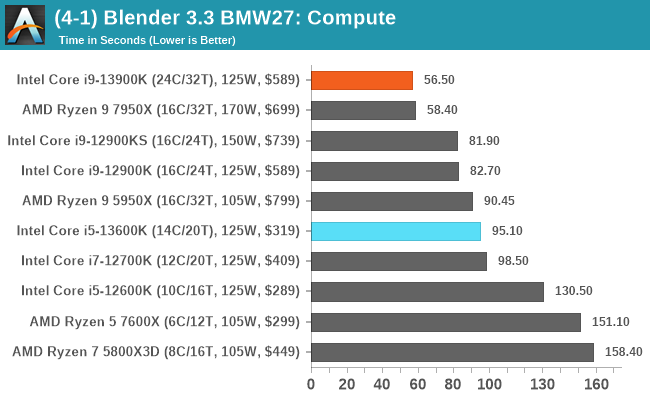
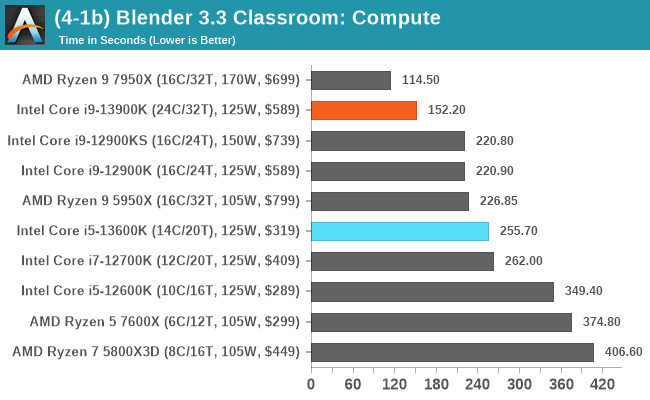
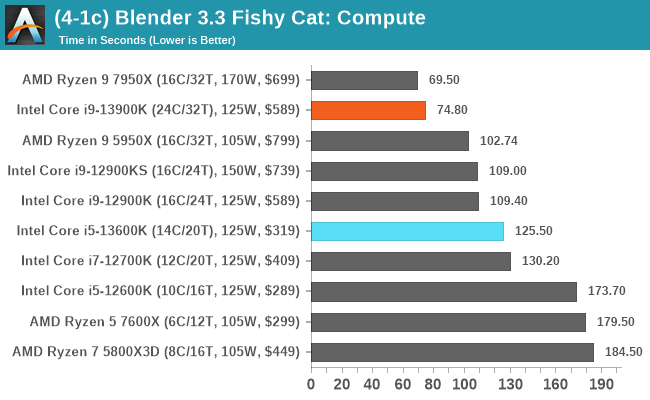
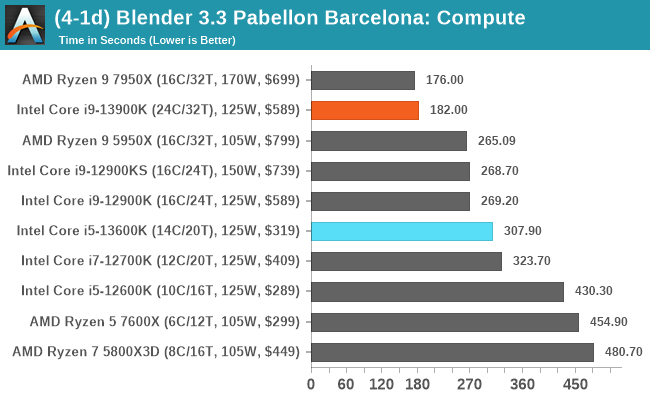
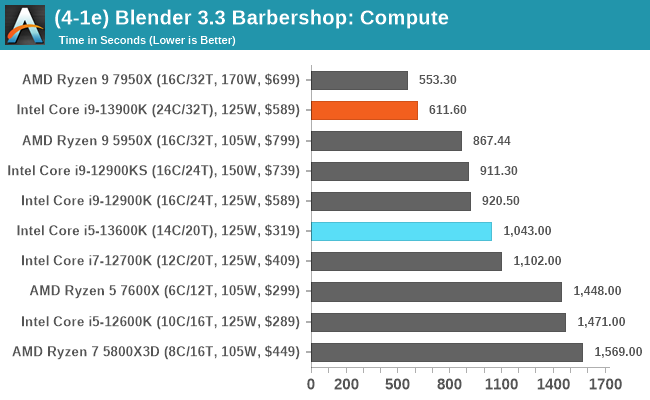
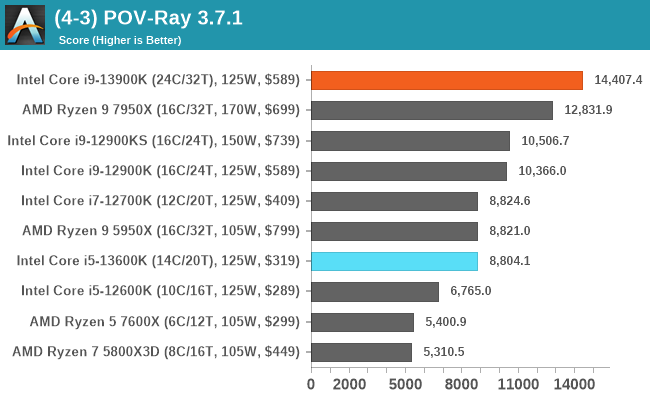
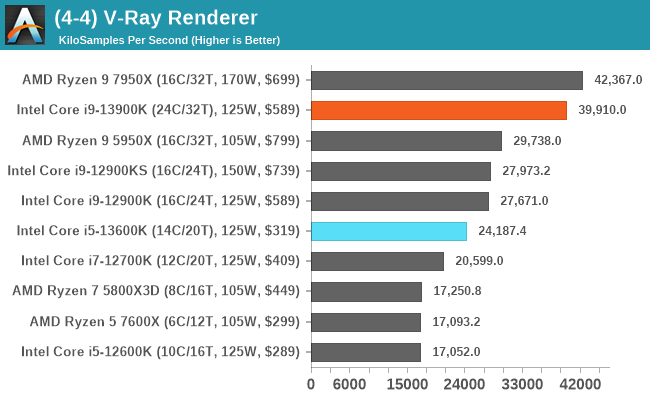
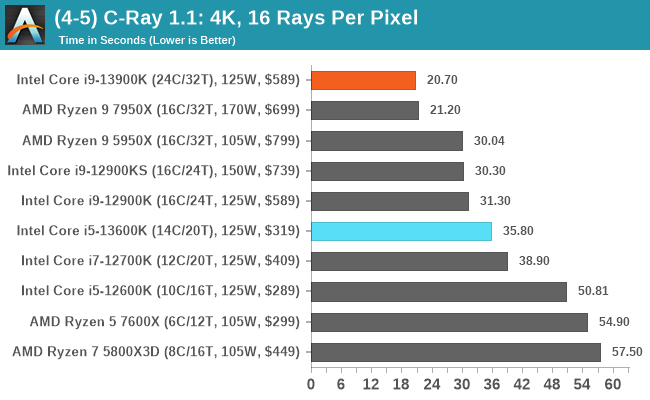
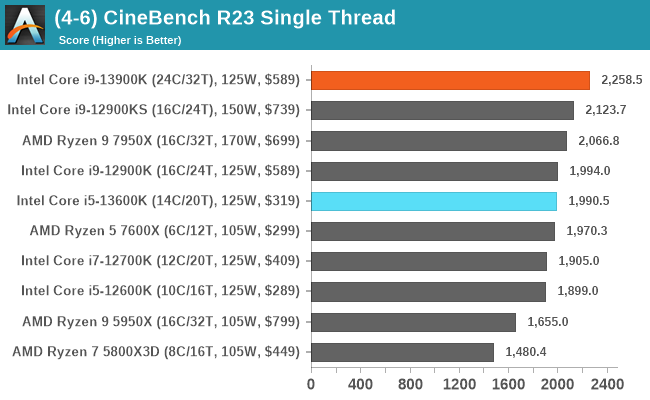
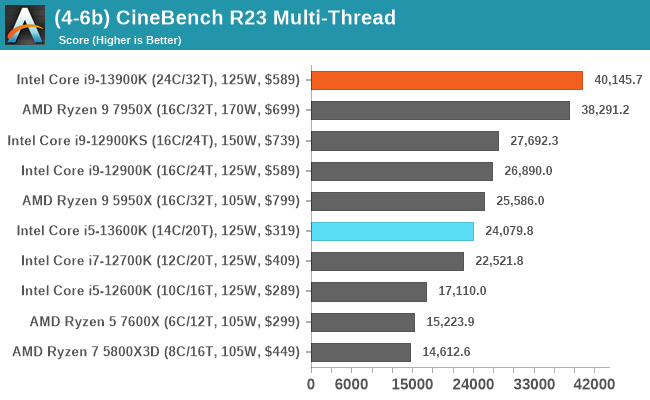
Identifying what core comes where in our rendering tests, both the Core i9-13900K and Ryzen 9 7950X sit comfortably at the top of the tree. Depending on the test, it’s a consistent battle for rendering supremacy. Where things aren’t as close are in our POV-Ray and V-Ray tests, where the Core i9-13900K has a distinct advantage; likely down to having eight more logical cores than the 7950X.
Encoding
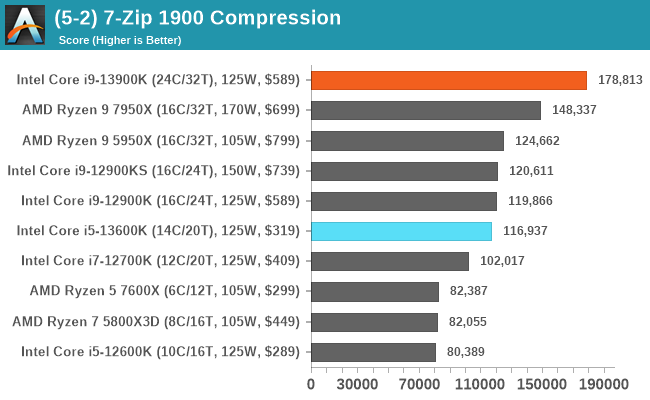
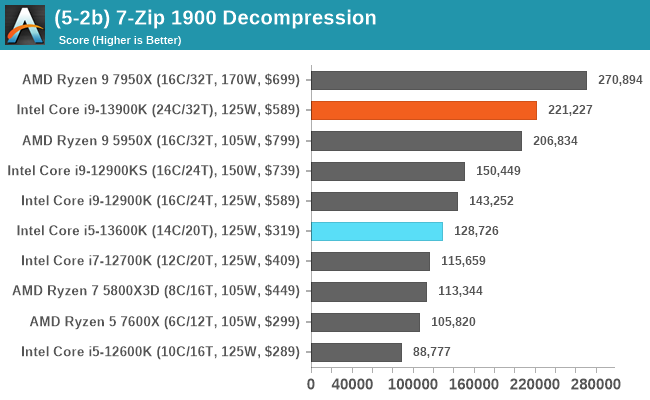
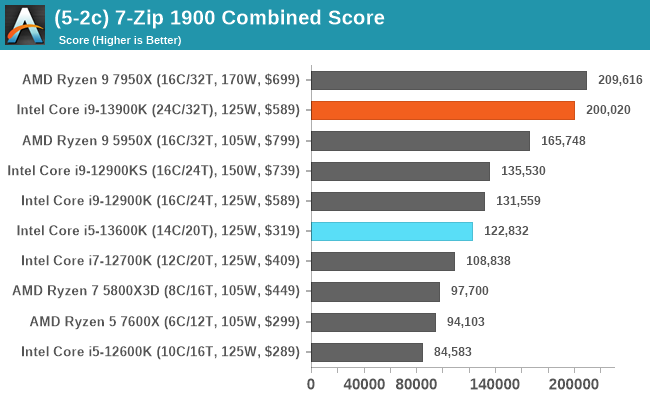
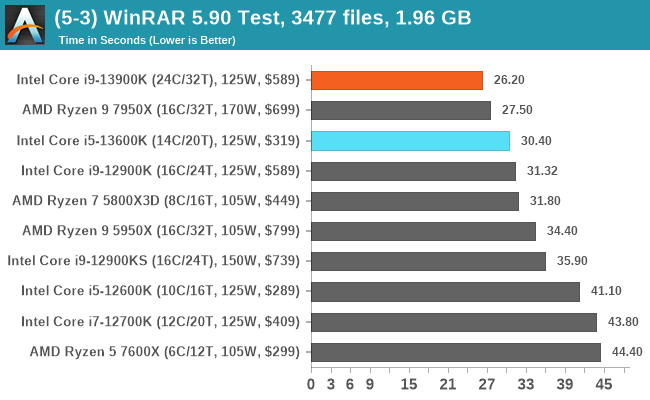
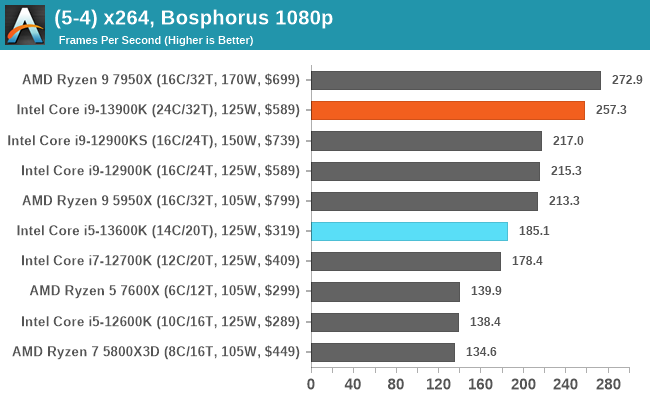
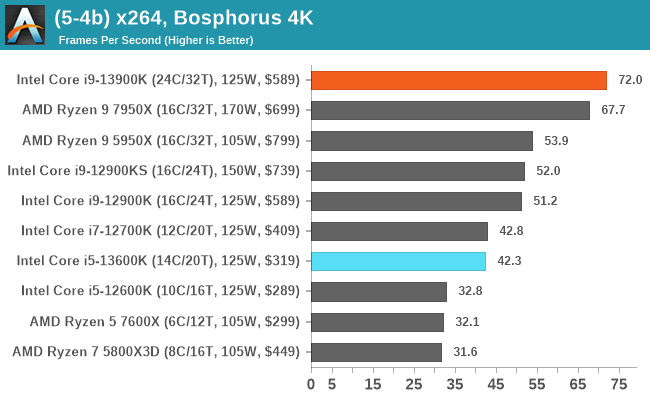
In our encoding tests, interestingly the Core i9-13900K looks to have the advantage in compressing files with 7-Zip. It’s a little different for AMD as the Ryzen 9 7950X decompresses the data better, with the overall combined advantage going to AMD in this particular test. In our updated x264 benchmark, Intel takes the lead in 4K encoding, while AMD has the lead in 1080p encoding; both are equally viable options, however.










169 Comments
View All Comments
kwohlt - Thursday, October 20, 2022 - link
I'm sure they're at least part of the reason why RPL has much lower idle power draw than Zen4, but their real purpose is to provide 4 threads for the same die area and power draw as a P core to scale MT workloads. ReplyRyan Smith - Thursday, October 20, 2022 - link
Bingo. They're for area efficiency reasons, not power efficiency reasons. Replytipoo - Thursday, October 20, 2022 - link
The X3D continues to impress in many areas doesn't it Replymeacupla - Thursday, October 20, 2022 - link
It's going to be a slaughter when 7000X3D series comes out... Replynandnandnand - Thursday, October 20, 2022 - link
The wins/ties/near-losses for Zen 4 and 5800X3D show the way. 7800X3D will come in like a wrecking ball. Replybrucethemoose - Thursday, October 20, 2022 - link
Typo at the bottom of page one: "Ryzen 5 7600K" ReplyTimSyd - Thursday, October 20, 2022 - link
Pricing is wrong. Like many AT are quoting Intel's 1000unit tray prices as the MSRPs. Tray prices are not the retail prices.NewEgg shows the retail price for the 13900k as US$659 Reply
Mr Perfect - Thursday, October 20, 2022 - link
MSRP is just suggested retail price, it's not enforced. In this instance Newegg appears to be pricegouging, as a boxed retail i9-13900K can be bought at the $569 price from other retailers, like Microcenter. Replynandnandnand - Thursday, October 20, 2022 - link
Intel did NOT provide MSRPs for Raptor Lake:https://en.wikipedia.org/wiki/Raptor_Lake#Raptor_L...
"Price reflects Recommended Customer Price (RCP) rather than MSRP. RCP is the cost per unit, in bulk sales of 1000 units or more, to OEMs, ODMs, and retail outlets when purchasing from Intel. Actual MSRP is higher than RCP" Reply
bji - Friday, October 21, 2022 - link
Microcenter is not a comparable retailer, ever. They only sell at those prices to local markets. You might as well compare prices of Amazon to that of Crazy Eddie's CPU Barn that sells only in one neighborhood of St. Louis. Reply